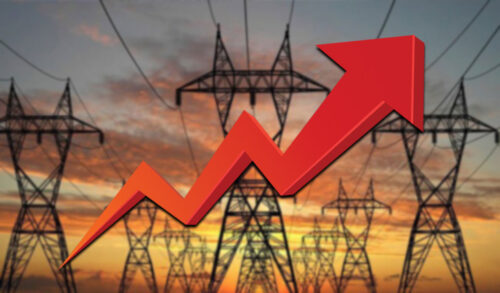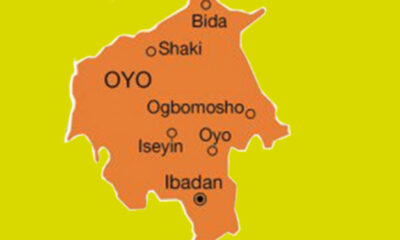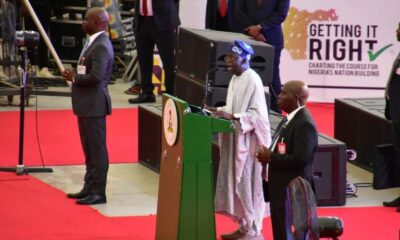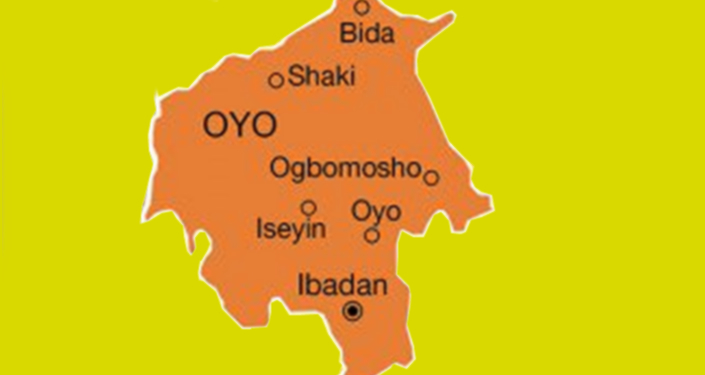Nigerians may need to prepare for tougher times as the country’s electricity tariff is expected to rise by more than 40% in the coming days. This development could lead to the termination of all energy subsidies in the nation.
The rate increase that will take effect on July 1 could be another crucial test for President Bola Ahmed Tinubu’s administration’s market reform because the energy industry still receives a monthly subsidy of roughly N50 billion due to a revenue shortage.
The administration has already removed subsidies on Premium Motor Spirit (PMS) and floated the naira, decisions that have complicated the price-setting of the Nigerian Electricity Regulatory Commission (NERC) 2022 Multi-Year Tariff Order (MYTO).
Although the power sector players have been unable to meet the threshold of supplying at least 5,000 megawatts a year after signing contracts with NERC, NERC’s current Service Based Tariff (SBT) was benchmarked on an exchange rate of N441/$ and inflation of 16.97 percent.
Going by the NERC’s orders, in 2015, the average tariff across distribution companies (DisCos) and classes of end-users was N25 kilowatt, in order of 198/2020, which came into effect on September 1, 2020. The average tariff went to N60 per kilowatt; in the MYTO for 2022, the average tariff was N64 across classes of customers.
The foreign exchange rate used in determining the 2015 tariff was N198.97/$, N383.80/$ was used in 2020, and N441.78/$ was used in 2022. The inflation used in the 2015 MYTO was 8.3 percent, 12 percent was used in 2020, and 16.97 percent in 2022.
Currently, the inflation rate is 22.41 percent and some experts have projected that it would hit 30 percent by the end of June given the floating of the naira and subsidy removal on PMS.
Coming as the metering gap remained at over seven million, gas prices, losses, and actual generation capacity are other elements in determining the tariff.
While NERC’s projected tariff for July 2023 was expected to remove subsidy and increase the previously frozen tariff band D and E, increasing the bands from N54.59/kilowatt to N62.16 for band D and N48.37/kilowatt to N61.16 on average with an average increase across the bands moving to N67/kilowatt, the prevailing floating of the naira and spike in inflation is projected to move the new average tariff to about N88/kilowatt for the sector to recover the cost.
Most stakeholders told The Guardian that while the increase is unavoidable due to the changes in the parameters, households and small businesses, which should power the economy, may head for serious problems with energy costs alone rising to over 70 percent as purchasing power remains a challenge in the face of unemployment and poverty.
At the time of filing this report, available electricity on the grid stood at 3,057.7MW from 17 power plants. The average load intake of all the DisCos in the last four months averaged 3,000MW, a development that follows the persistent push to make the DisCos meet up with 100 percent of their remittance orders.
With the question of affordability emerging as a major consideration as the grid remains unreliable, forcing it to make losses, stakeholders have expressed fear that Nigerian Electricity Supply Market may face tougher times managing its outlook due to apathy that may come from consumers who are losing hope in the system and resorting to alternative energy.
Energy expert, Prof Wunmi Iledare, said the restructuring of the forex market creates worries as it appears as a devaluation of the naira, adding that he’s not comfortable blaming subsidy removal and paying the right tariff for decoupling Nigeria’s economy from forex instability.
According to him, people must support the government in its effort to stop the dollarisation of its economy even if electricity tariff and petroleum products prices rise to a not-too-comfortable market-clearing price.
Iledare, however, questioned the current energy pricing in the country, adding that the PMS pricing which stayed after the NNPC announcement is anticompetitive based on the dominant firm market structure.
“Price hike cannot just depend on forex in the electricity market. Market fundamentals are key to rate determination in a decreasing cost industry producing essential commodities, like power,” Iledare noted.
Energy lawyer, Madaki Ameh, said the never-ending upward reviews of power tariffs have become some sort of blackmail on electricity consumers and should be addressed through the Consumer Protection Council or an organized body of electricity consumers.
“Indexing the cost of electricity on the dollar is a huge mistake because most of the inputs for electricity supply are local. The DisCos are also holding Nigerians to ransom by failing to increase the supply base, thereby spreading the tariffs across a broader spectrum of consumers to reduce the unit cost of electricity,” Ameh said.
He insisted that as long as there remain many unmetered consumers and many others not connected to the grid at all, the few consumers on the grid would continue to be subjected to unjust tariffs, which are not reflective of the quality of service delivered.
Ameh hoped that the signing into law of the new Electricity Act would mark “the beginning of light at the end of the long tunnel of inefficient and epileptic power supply in Nigeria.”
President of Nigeria Consumer Protection Network, Kunle Olubiyo stated that while the last major review of electricity tariff was benchmarked at $1/N400, the floating of Naira and harmonization of the exchange rate put the exchange rate at about N750/$.
“It will affect the tariff template and result in an upward review of electricity tariff.
“As important as this may be, two things are quite imperative to help in achieving a win-win for the demand and supply side of the coin.
Moving forward, governments through relevant regulatory institutions should liberalize end users’ customers ‘ access to effective metering and mass metering to help in drastically closing the ever-increasing huge metering gaps,” Olubiyo said.
He asked the government to look into gas pricing and align it with domestic gas obligations.
“Gas to power generation plants/ thermal plants should be allowed to access gas which should be traded in local currency,” Olubiyo said.
Electricity Market Analyst, Lanre Elatuyi said the new tariff rate would have an impact on the tariff, stressing that the “naira devaluation is a big challenge to companies with dollar loans to pay,” a development, which he said, would affect the power generators who have dollar loans repayment obligations.
“They will need more naira today to buy a dollar. They need to manage their exposure to foreign exchange risk. Even operators of hydro plants pay their concession fees in dollars. So, wholesale electricity price will be adjusted upward and this will get to the end users’ tariffs too,” Elatuyi said.
Executive Director at PowerUp Initiatives For Electricity Rights (PowerUp Nigeria) Adetayo Adegbemle said while increasing tariff appears normal due to the prevailing situation, there is a need to review the whole process and encourage basing the electricity tariff against the naira going forward.
“We have seen changes in the review yardstick before, and this could be an opportunity to review our tariff process,” he stated.
Former President of the Chartered Institute of Bankers of Nigeria (CIBN) and professor of Economics at Babcock University, Segun Ajibola, said there is still a disconnect between the cost of electricity and the value exchange.
“Nigerians are still struggling to keep pace with the cost of energy for business and household use. If the electricity tariff goes up as envisaged, the question remains if there will be value for the quantum of electricity so paid for.
“The truth remains that if electricity supply is constant, of the right quantity and quality, the envisaged upward review in the tariff will be gladly absorbed by the populace,” he said.
Ajibola disclosed that the positive multiplier effects of a regular power supply in a country like Nigeria would more than compensate for the anticipated increase in electricity tariff when the increase is compared with the cost of alternative sources of energy to SMES, other businesses, and households.
He noted that in the long run, the costs of some of the public infrastructures to the populace are expected to in the short run rise to the peak, then flatten and decline subsequently.
“I believe the short-run pains of the higher cost of hitherto subsidized public infrastructures will turn to long-run joy for the generality of Nigerians with improved quality of management and accountability in our government-owned suppliers of those services.
“The move to open up the production and supply of those items and services such as fuel, electricity, and transportation is designed, I believe, to promote economic efficiency and accountability in making the products and services available for the generality of Nigerians.
And if the current efforts at driving such public sector accountability are sustained, which I believe the new administration has the wherewithal to do, then Nigeria is on the march towards greater greatness,” Ajibola said.

 BIG STORY12 hours ago
BIG STORY12 hours ago
 BIG STORY4 days ago
BIG STORY4 days ago
 BIG STORY2 days ago
BIG STORY2 days ago
 BIG STORY2 days ago
BIG STORY2 days ago
 BIG STORY3 days ago
BIG STORY3 days ago
 BIG STORY1 day ago
BIG STORY1 day ago
 BIG STORY2 days ago
BIG STORY2 days ago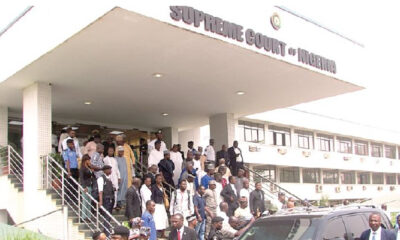
 BIG STORY3 days ago
BIG STORY3 days ago




